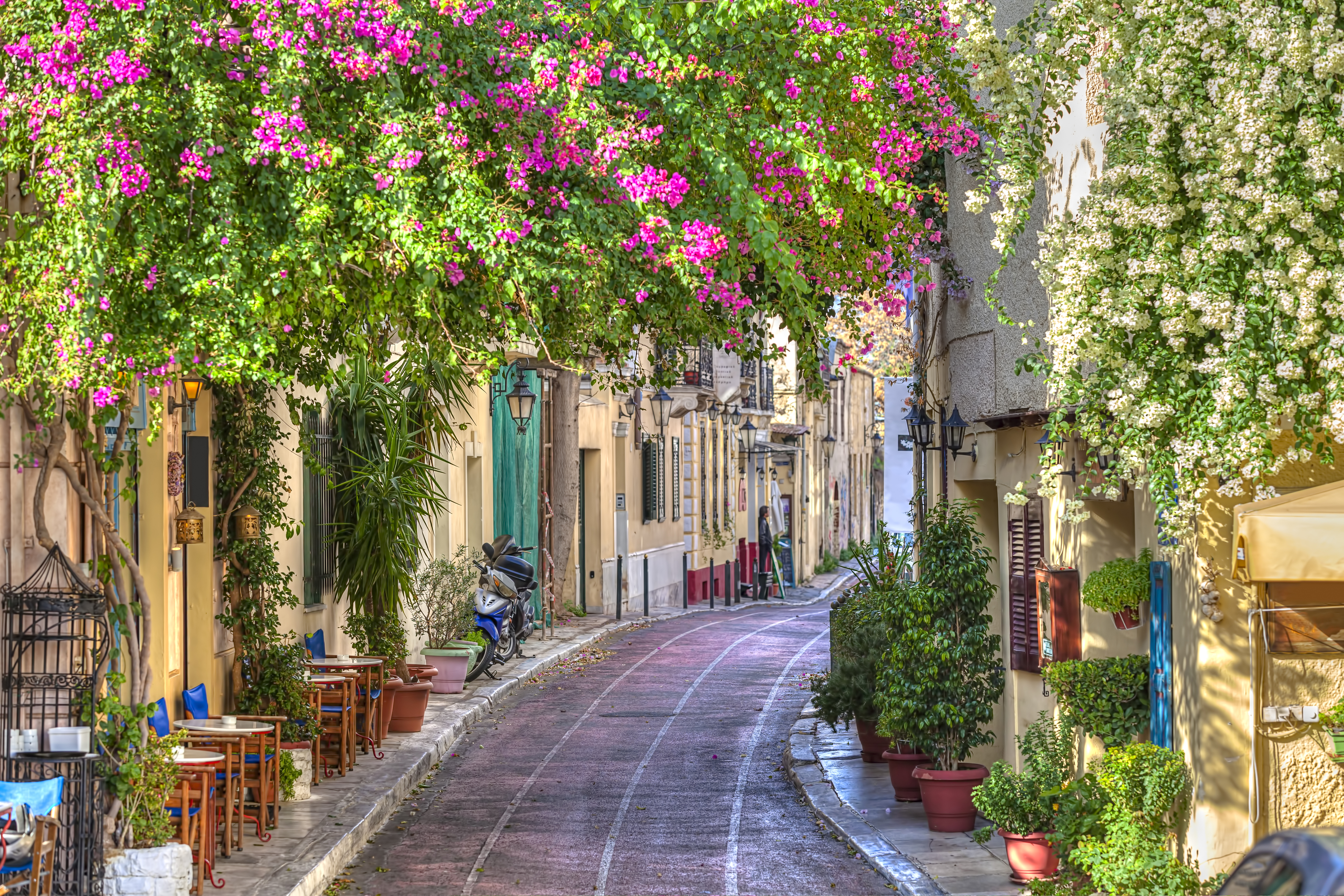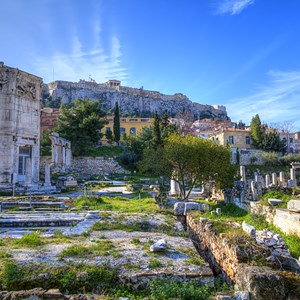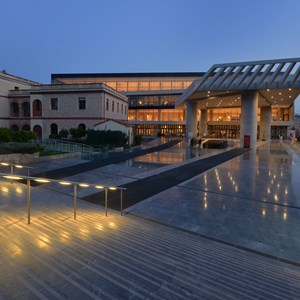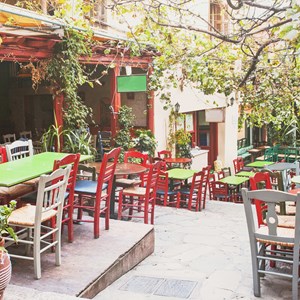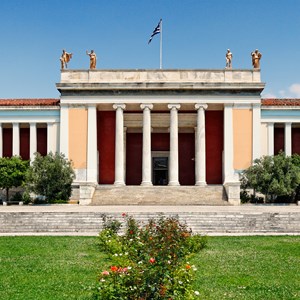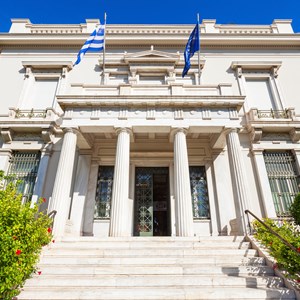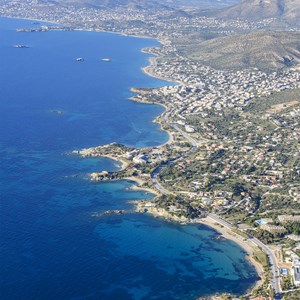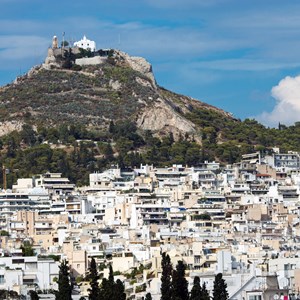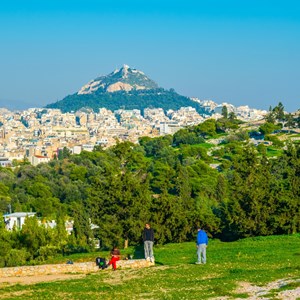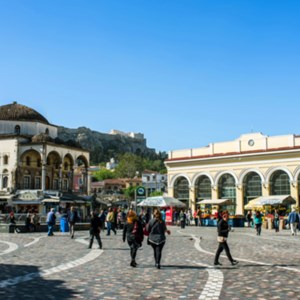

One of Europe's Ancient capitals, Athens has undergone significant change in recent years. A modern metropolis with an old town feel, this is where antiquity meets futurism, and ancient monuments fuse with a trendy, cosmopolitan scene. Plaka neighbourhood is the heart of its historical centre, with labyrinthine streets leading to all manner of ancient wonders.
The City
Athens’ heyday was around 400 years BC, that’s when most of the classical monuments were built. During the Byzantine and Turkish periods the city decayed into just an insignificant little village, only to become the capital of the newly-liberated Greece in 1833. Ahead of the 2004 Olympics, almost the entire infrastructure was transformed: the Metro, trams, new ring roads and viaducts have eased the pressure of heavy traffic.
Athens is still a rather messy and chaotic place — it wouldn’t be Athens otherwise — and despite all the improvements, it still retains a great deal of its original charm. The whole coastal stretch from Piraeus to the old Hellenikon airport has been improved with new plantings, viaducts and paths for walking. The Plaka district is becoming more and more popular and it is on the way to catching up with Psyrri, Gazi and Rouf when it comes to restaurants and cafes. Discover the beauties of the Anafiotika district, at the feet of the Acropolis, and visit the ancient village still housed in the midst of the city. In Exarchia, there is a somewhat in-your-face anarchic atmosphere around the Technical University. Meanwhile, Kolonaki is becoming more and more gentrified.
Do & See
Athens' renowned history and iconic landmarks are only part of what makes the city so compelling. The challenges brought on by the economic crisis have left their mark, but they've also fuelled a vibrant creative energy. Today, Athens continues to surprise and inspire its visitors with its dynamic culture, street art, evolving food scene, and the resilience of its people.
Dining
Food is at the centre of all activities in Greece, and it is easy to understand why. The Greek cuisine, Mediterranean at heart and influenced by their Turkish neighbours, is fresh, honest, filling and absolutely delicious. Whether you are in for a tour of the best Greek Tavernas in town, looking for the tastiest gyros or want to try the new Greek cuisine, you might adjust to the local rhythm and spend a lot of time around the table.
In Athens and in Greece, you can eat at any time of the day and late at night. Tavernas and Ouzerias, where you can drink local cocktails and usually hear traditional music, are also a key place for social life.
Cafés
Drinking coffee in Greece is an institution, and Athens is no exception. You will find cafes and their terraces full of people, laughter, cigarette smoke and animation every day and all year long. Cafes here are the place to meet up with friends, relax, have long conversations about life and politics, or to play backgammon; when in Greece, call it "Tavli".
The most Greek coffee drink is without a doubt the frappé. It was invented at the 1957 Thessaloniki International Fair by Giannis Dritsas, a representative of the Nestlé company. It's basically instant coffee whipped with cold water until frothy, served on ice. If you're not an instant coffee lover, ask for the server to add some sugar and milk to your drink. It's quite a marvellous invention for hot summer days.
Of course, third wave coffee has made it to Athens as well. You can choose to sit at a trendy or alternative cafe, at a traditional kafeneio, or even at one of Greece's own coffee chains.
Bars & Nightlife
Athens' bar scene brings neverending surprises. The nightlife extends way beyond the first morning lights. The Greeks know how to drink and party, and Athens is the living and breathing image of this happy and joyful spirit.
From alternative bars to fancy clubs, pubs and traditional 'ouzerias', follow the flow and experience one of the best nights of your life.
Shopping
It is almost unbelievable that Athens is not yet consecrated as one of the best fashion and shopping destinations in Europe. It has everything the other capitals are so proud of: international brands, luxury products and major names, designer shops, smaller and more original boutiques, all showcased in pleasant walkable streets and neighbourhoods, but usually with lower prices than cities such as Paris, Milan or London. Even though years ago the city was hit hard by the crisis and many small shops had to close, it still offers plenty of shopping opportunities in and around the centre.
Tourist Information
Athens International Airport (ATH)
Athens International Airport is located at Spata, 33 kilometres, 20 miles, southeast of Athens. A taxi ride to the city-centre will cost a flat rate of €40 between 5am and midnight, and €55 between midnight and 5am. The fixed fares include the basic fare, plus extra luggage charges and road tolls.
The Metro's Line 3, Blue Line, Nikaia–Airport is another option to go to the centre. The journey to Syntagma takes around half an hour.
Airport buses are available to Syntagma: X95, Piraeus port: X96, Kifissou Avenue: X93 and Elliniko: X97. The travel time to Syntagma and the other areas in town takes around 1 hour and around 1.5 hours to Piraeus port.
Address: Attiki Odos, Spata, Greece
Email: airport_info@aia.gr
Phone: +30 210 353 0000
Website: www.aia.gr
More Information:
Passport & Visa
Citizens of European Union (EU) and European Economic Area (EEA) countries do not need a visa to enter Greece, only a valid ID. Many other countries, including the United Kingdom, United States, Canada, United Arab Emirates, Australia, and New Zealand, benefit from visa-free entry for short stays of up to 90 days within a 180-day period.
Visitors from visa-exempt countries must hold a valid passport and, starting in late 2025, will need to apply for an ETIAS (European Travel Information and Authorisation System) authorisation online before travelling.
For those requiring a visa, such as travellers from some Middle-East, African or Asian nations, a Schengen visa must be obtained prior to arrival. All travellers should ensure their passport is valid for at least three months beyond their intended stay.
Address:
Email:
Phone:
Website: https://home-affairs.ec.europa.eu/policies/schengen/visa-policy_en
More Information:
Best Time to Visit
Greece is a tourist destination beloved worldwide, and summer is the most crowded season of all, especially in July and August. Spring is, perhaps, the best season to travel to Greece, as the main cities such as Athens are not so crowded and the prices are a little lower.
June and September are the best months to visit Athens when the beaches around the capital are full of entertainment. If you love hiking, don't miss Athens in autumn.
Address:
Email:
Phone:
Website:
More Information:
Public Transport
In Athens, the metro stations are kept spotlessly clean. At the Syntagma and Acropolis stations you will find a large collection of antiquities on display.
There is a tram from the centre, Syntagma, running along the coast to Glyfada, 50 minutes, and Voula, 60 minutes.
Buses, trolley buses and the metro run until around midnight. The tram runs between 5:30am and 1am, and until 2:30am on Friday and Saturday. Airport buses all run 24/7. The airport bus tickets are not valid for other public transport services, but only for a single journey.
Ferries out to the island leave from the harbour in Piraeus or from Rafina.
Address:
Email: contact@athenstransport.com
Phone:
Website: www.athenstransport.com/english
More Information:
Taxi
There are lots of taxis, but it is normal to share one with other tourists, so don't be surprised if the driver picks up additional passengers along the road who are going in the same direction. The drivers have taximetres and fixed prices.
Uber and another app called Freenow also work in Athens.
Address:
Email:
Phone:
Website: www.athenstaxiquality.com
More Information:
Post
Stamps can be bought in most tobacconists and kiosks selling postcards. Syntagma Square has a full service post office right across from the Parliament building.
Address: Greek Post (ELTA), Mitropoleos 2, Athens
Email:
Phone: +30 210 324 5970
Website:
More Information:
Pharmacy
In case of a medical emergency you should phone 166 for an ambulance. Greek pharmacies aren’t usually open in the afternoon or at weekends.
Bacacos Pharmacy is centrally located close to Omonia Square.
Address: Agiou Konstantinou 3, Athens
Email: pharmacy@bacacos.gr
Phone: +30 210 523 2631
Website: www.bacacos.gr
More Information:
Electricity
Greece uses the Type F electrical plug with two round pins, same as in many countries in Continental Europe. The standard voltage is 230 volts, but some hotels have special plugs for 110 or 120-volt shavers.
Address:
Email:
Phone:
Website:
More Information:
Telephone
Country code: +30
Area code: 210
Address:
Email:
Phone:
Website:
More Information:
FAQ
– Is it safe to go to Athens?
Athens is visited by millions of people every year and is considered to be a safe destination, even for solo female travellers. Most visits are trouble-free, but be weary of pickpockets on the metro and close to crowded tourist sights.
– Is Athens expensive for tourists?
As most most other European capitals, Athens is certainly not cheap, but it is not very expensive either. How much you should budget strongly depends on your preferences and needs. One way to save money is by buying combo tickets to museums and planning ahead.
– Is Athens walkable?
The historical centre of Athens is very walkable. A pedestrian grand promenade snakes around the Acropolis and links key archaeological sites. The city also offers affordable public transportation.
– Best Areas to Stay in Athens?
The best neighbourhoods in Athens are Plaka, Monastiraki, Koukaki, Syntagma, Kolonaki, and Psyrri. They are very walkable, offer great hotels and short-term rentals, plenty of restaurants, cafes and nightlife.
Address:
Email:
Phone:
Website:
More Information:



